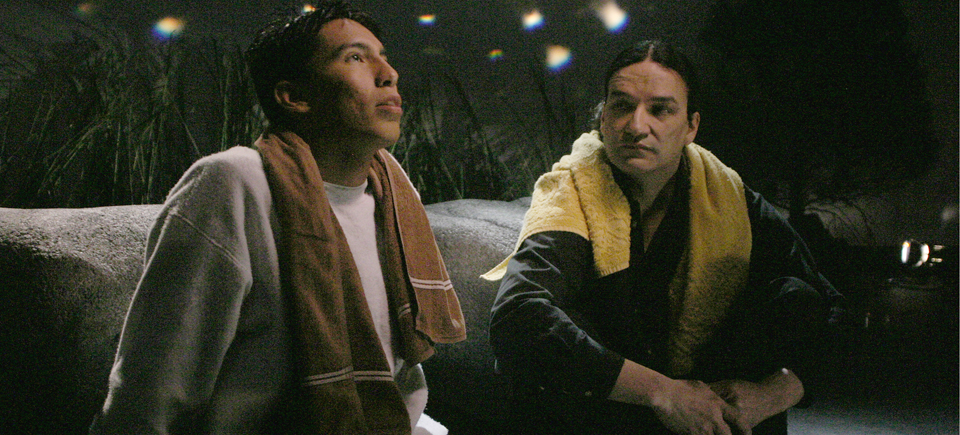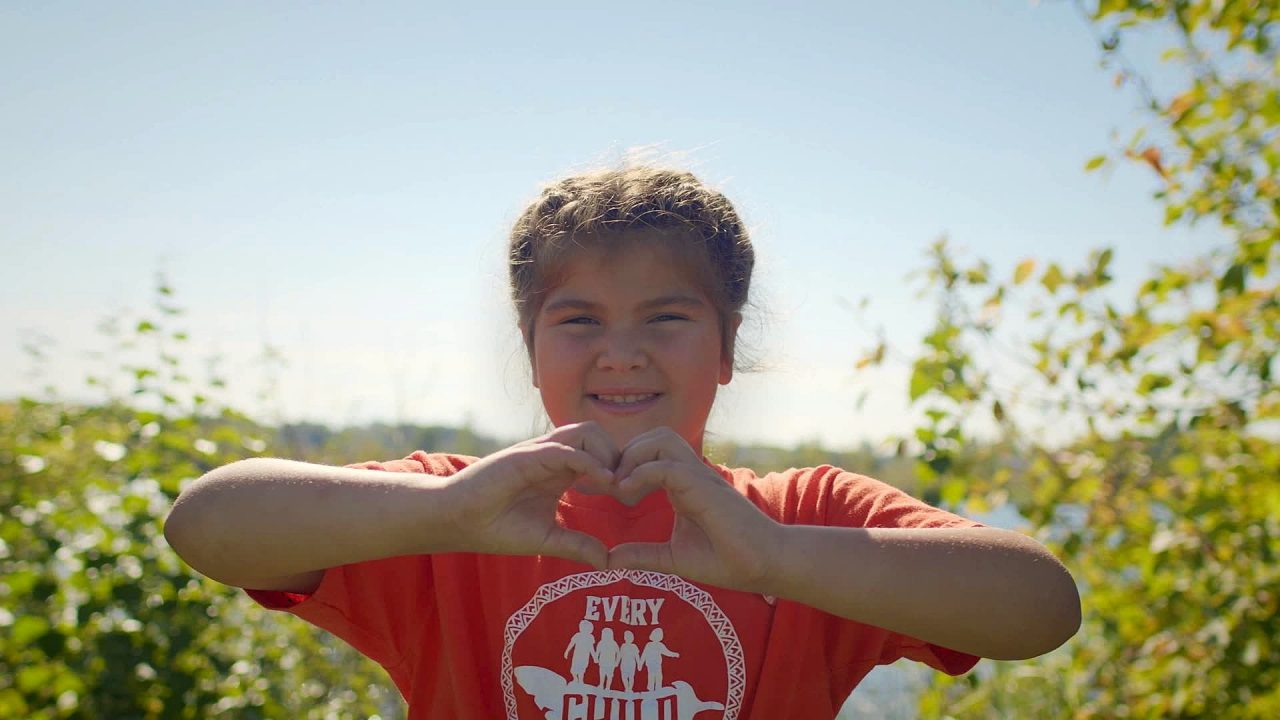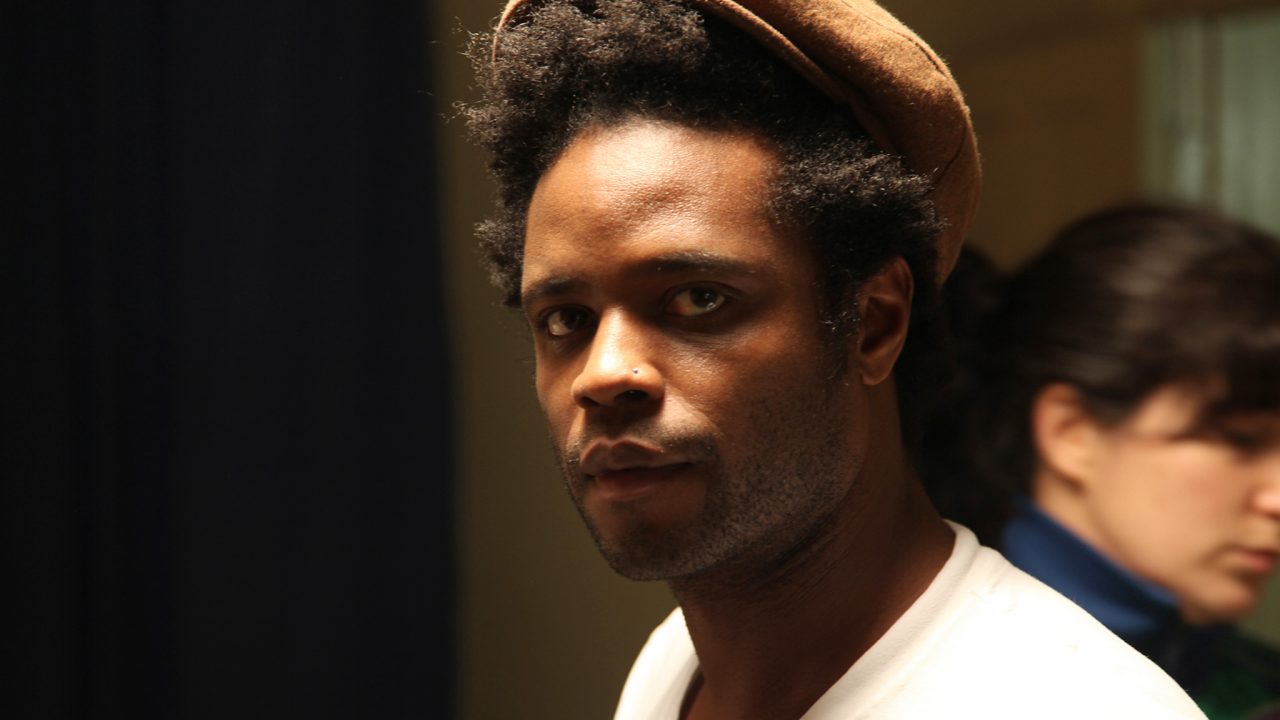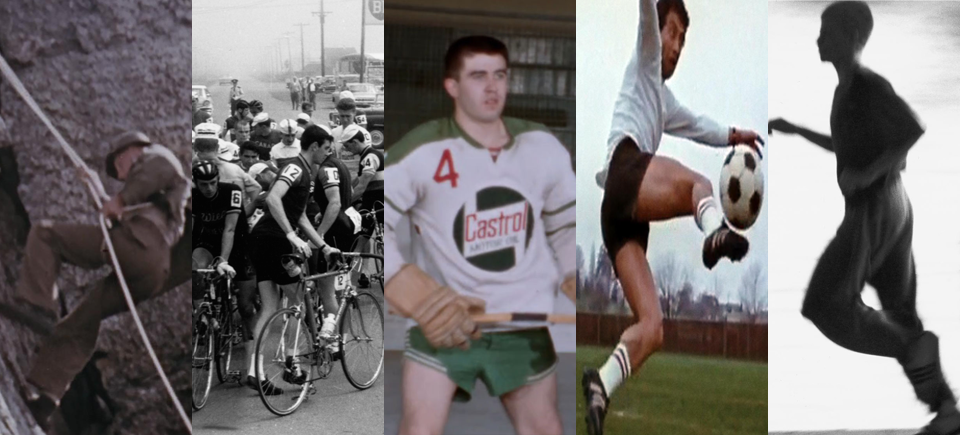
Niigaanibatowaad: FrontRunners, carrying the torch
Niigaanibatowaad: FrontRunners, carrying the torch
This post was written by Jane Hubbard. She is the Education Manager at the Legacy of Hope Foundation and has worked on developing curriculum that explores the issue of the Indian Residential School System in Canada and contributed to the development of a facilitator’s guide and other pedagogical materials for the NFB.
In July 2015, the Pan American Games will be held on Canadian soil for the third time in the history of the event. The coming Games, which will take place in Toronto, provide an excellent teaching opportunity—a chance to examine the injustice committed during the 1967 Games’ opening ceremonies and to contextualize this incident against the backdrop of Canada’s Indian Residential School system, as depicted in Niigaanibatowaad: FrontRunners.
One man’s struggle to face his past
This NFB film explores one man’s struggle to face his past so that he can complete a journey he began at the 1967 Pan Am Games in Winnipeg. Thomas Ross was a FrontRunner, one of 10 Indigenous youth asked to carry a torch from St. Paul, Minnesota, to Winnipeg, Manitoba. Six days later, when the torch arrived at the stadium, a non-Indigenous runner took it and carried it inside to light the flame that would signal the start of the Games. The FrontRunners who had carried the torch over 800 kilometres along an ancient trade route were ignominiously denied the honour of bearing it on the final leg of its journey. It is time to revisit both the injustice perpetrated against the FrontRunners in 1967 and what was done to make it right at the 1999 Games.
Niigaanibatowaad: FrontRunners, Lori Lewis, provided by the National Film Board of Canada
Based on a play by Laura Robinson, Niigaanibatowaad is narrated by Ross and also takes the form of a play, with two acts. The sets and dialogue are spare and basic but the emotions conveyed are powerful and thought-provoking. One of the film’s central themes is the mistreatment of Indigenous students who attended the residential schools, and how that mistreatment continues to affect their lives today. We see Thomas sitting in a hotel room, unable to participate in the FrontRunners reunion in 1999 because of past events that he’s replaying in his mind. He recalls how he and another FrontRunner viewed excelling in sports as a way to escape the residential school, both figuratively and literally. Thomas is only able to overcome his painful memories and participate in the ceremonies when an unexpected visitor from his past reminds him that he must take part in order to truly begin his healing journey.
Study the impact of residential schools
The companion study guide developed for Niigaanibatowaad consists of two classroom activities. The guide assists viewers in examining the injustices presented in the film and in studying the impacts of the residential school system on Indigenous people in Canada, while encouraging students to learn what social-justice activities they can undertake to further the rights of Indigenous peoples. The guide is available to CAMPUS members, in the Learning Bundles module. Members must search for the bundle entitled Pan Am Games: Learning from the Past. This learning bundle also has Background Notes about the Pan American Games, the residential school system in Canada and a glossary of terms.
Inspire meaningful conversation
The subject matter of this film is challenging and may give rise to strong feelings and emotions. The scenes in which physical and sexual assault are implied may connect viewers to their own experiences. Before screening Niigaanibatowaad, have a plan in place so that students can take a break and leave the classroom if they need to do so.
Talk to your class about the difficult nature of the film and remind students that they should be supportive and respectful to one another as they learn together. Although the material is disturbing, it can also inspire meaningful conversation.
The Pan Am flame will be lit in May during a traditional ceremony in Teotihuacan, Mexico, before travelling to Canada to begin a 41-day journey through more than 130 communities, and then making its final stop on July 10 at the Opening Ceremony of the Toronto 2015 Pan Am Games. To learn more about the relay, please visit http://www.toronto2015.org/torch-relay/torchbearers.



